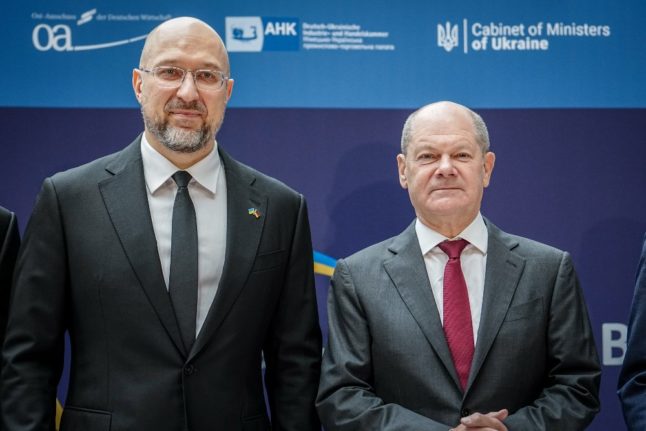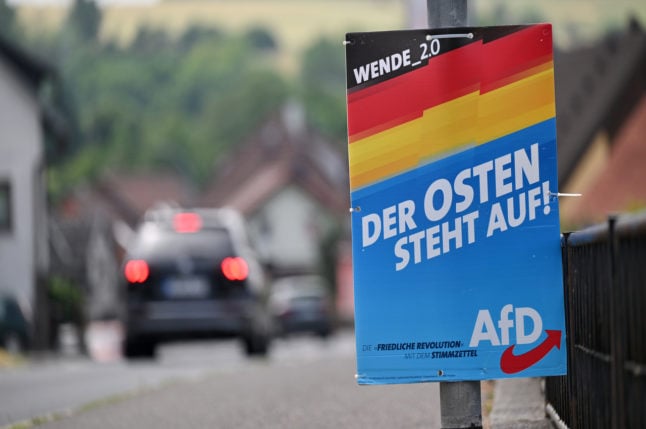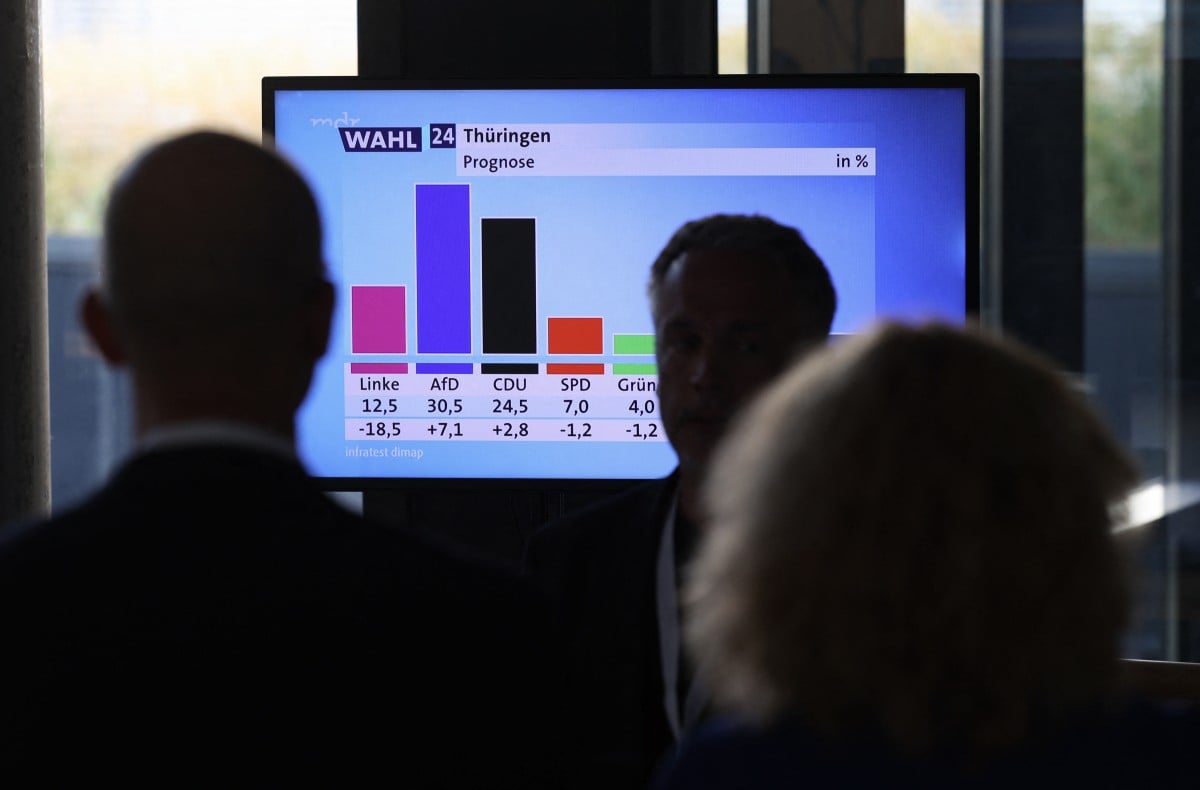“We are backing Ukraine economically, financially, with humanitarian aid and also with weapons,” Scholz said.
“This support will in no way be impacted by the fact that we of course since the horrible morning hours of October 7th have focused on Israel and the Middle East with the greatest sympathy and concern,” he said.
The German leader was speaking at a German-Ukrainian business forum in Berlin attended by Ukrainian Prime Minister Denys Shmyhal and joined virtually by President Volodymyr Zelensky.
Scholz said Russian President Vladimir Putin had attacked Ukraine in an act of “imperialist delusion” and was “mistaken if he believes that he will endure longer than we will”.
“Ukraine will not stop fighting for its freedom — that has become unmistakeably clear in these more than 600 days” since the start of the invasion in February 2022, Scholz said.
“And you have our word. We will support Ukraine as long as necessary.”
READ ALSO: Germany pledges long-term military aid to Ukraine
After some initial hesitation, Germany drastically ramped up its support for Ukraine in the wake of Russia’s invasion. The country is now the second-biggest supplier of military assistance to Kyiv after the United States.
Scholz was the first foreign head of government to visit Israel since the shock Hamas attack and has emphasised that support for Israel’s self-defence is at the core of German foreign policy due to Berlin’s responsibility for the Holocaust.
Defence Minister Boris Pistorius said this month that Germany would allow Israel to use two of its Heron TP combat drones and is considering a request for ammunition for warships.
More than 220 Israelis, dual nationals and foreigners were kidnapped by Hamas militants during their attack on southern Israel on October 7th that killed more than 1,400 people, according to Israeli officials.
Israel says around 1,500 Hamas fighters were killed in clashes before its army regained control of the area under attack.
More than 5,700 Palestinians, mainly civilians, have been killed across the Gaza Strip in relentless Israeli bombardments in retaliation for the attacks by the Palestinian Islamist militant group, according to the latest toll from the Hamas health ministry in Gaza.




 Please whitelist us to continue reading.
Please whitelist us to continue reading.
Member comments